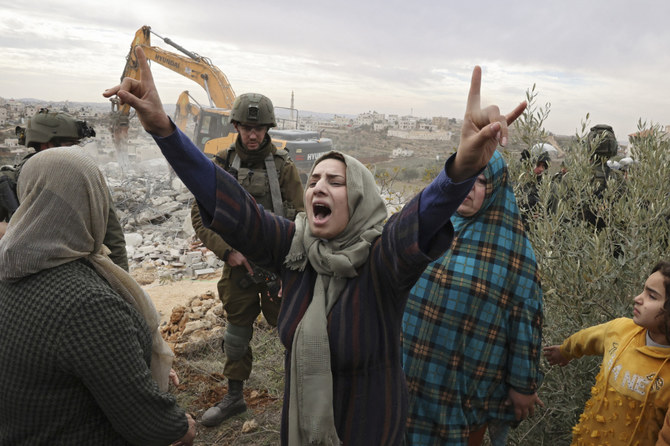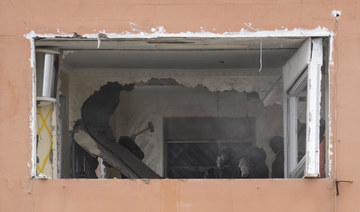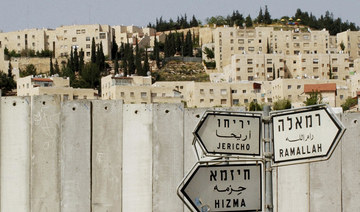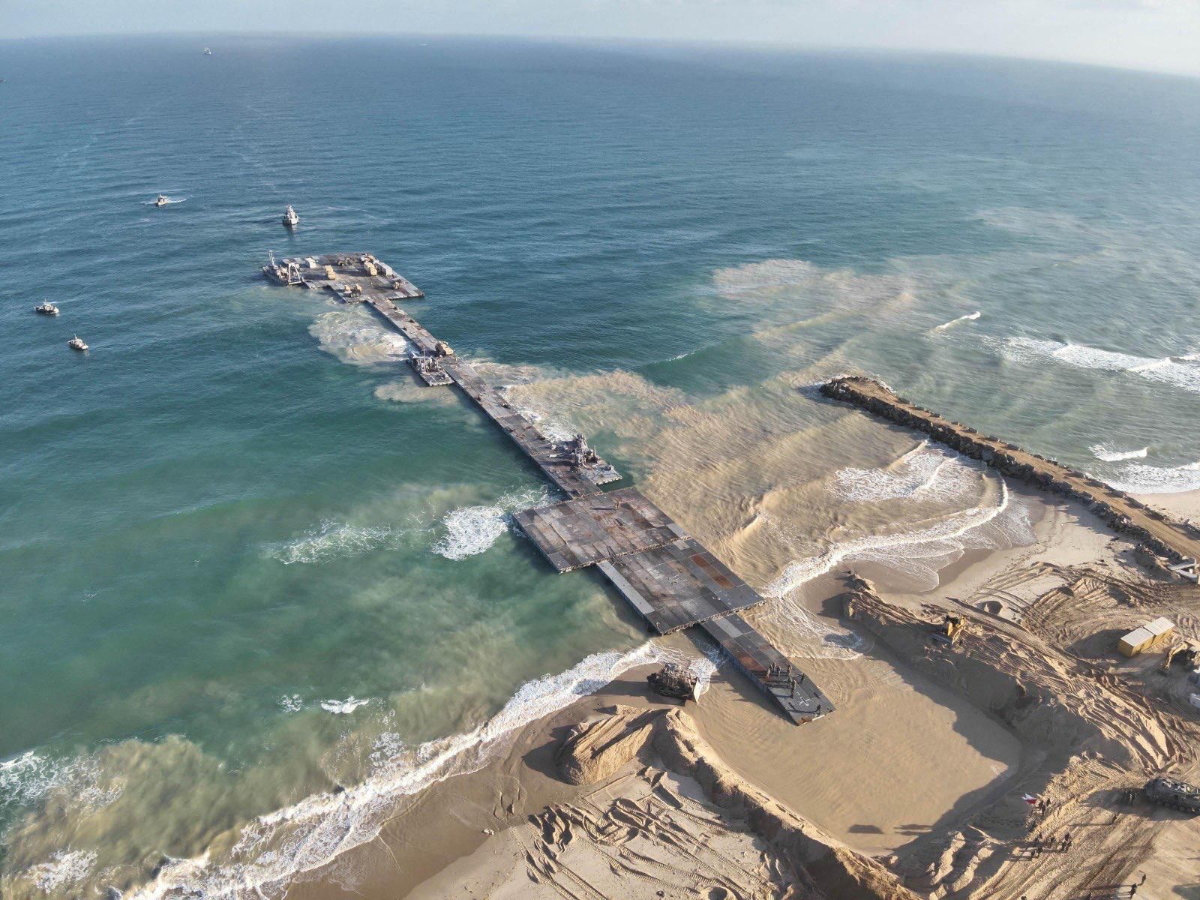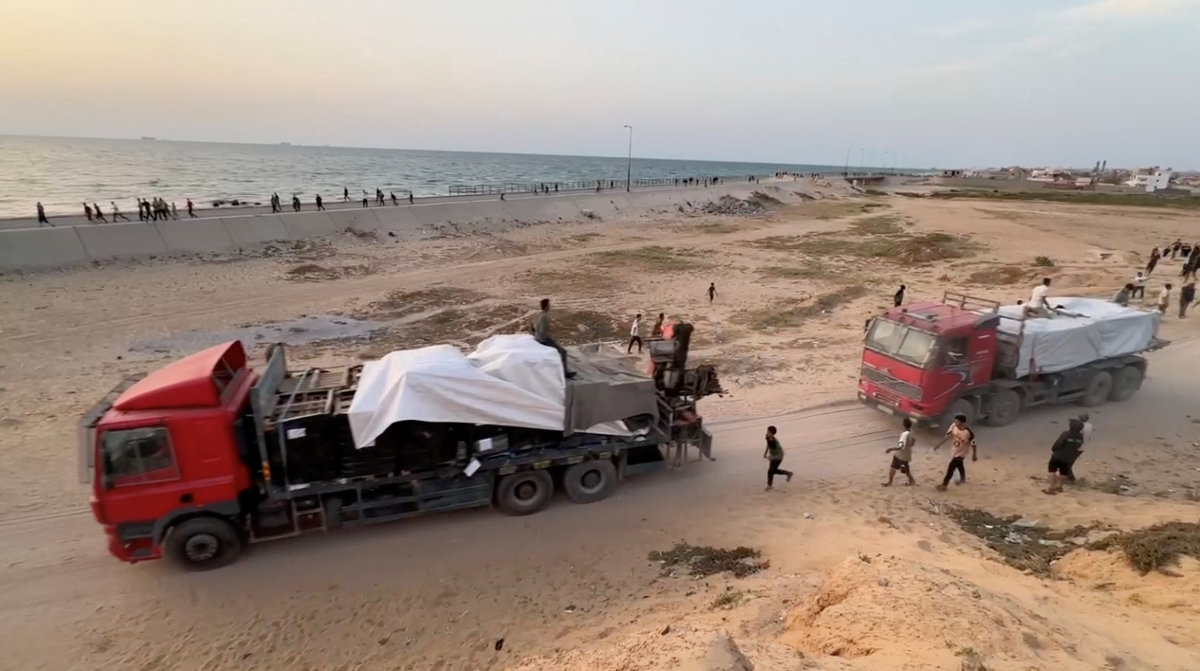LONDON: Israel’s treatment of the Palestinian people is a study in the mechanisms and policies by which apartheid systems operate and reproduce oppression, according to a new report by Amnesty International.
In its report, published on Tuesday, the human rights monitor says there is a growing body of evidence to suggest these legal, technical and militaristic mechanisms are crimes worthy of prosecution in the International Criminal Court.
An apartheid regime by definition systematically empowers, enrichens and emboldens one ethnic group to the direct detriment of another. In South Africa, from 1948 until the early 1990s, it was white people advancing at the cost of black people. In Israel and Palestine, according to Amnesty, it is Jewish Israelis benefitting from the systemic oppression of Arabs.
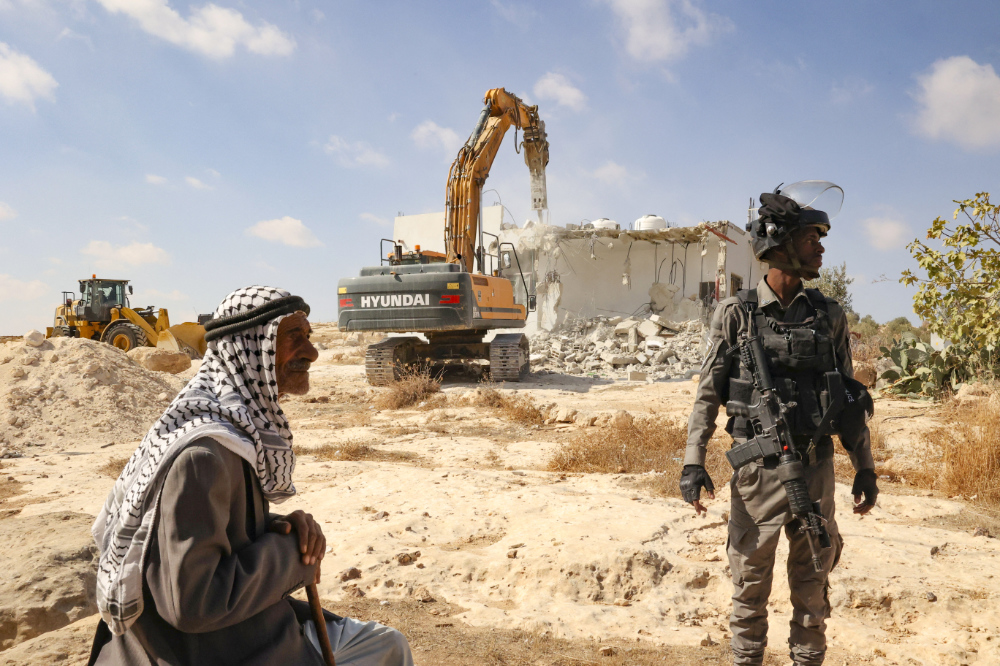
Amnesty’s 280-page report features a slew of allegations against Israel. (AFP)
Amnesty’s report found that “massive seizures of Palestinian land and property, unlawful killings, forcible transfer, drastic movement restrictions, and the denial of nationality and citizenship to Palestinians are all components of a system which amounts to apartheid under international law.”
As a legal term, the word apartheid is defined as “an institutionalized regime of oppression and domination by one racial group over another.” It was deemed a crime against humanity under the 1973 International Convention on the Suppression and Punishment of the Crime of Apartheid — the “Apartheid Convention” — and then later the 1998 Rome Statute of the International Criminal Court.
Despite Israel signing up to the 1998 Rome Statute — though never ratifying it — Amnesty has documented extensive evidence that the Israeli state now engages in apartheid in the legal sense, potentially opening the door to prosecution in the ICC.
Amnesty’s 280-page report features a slew of allegations against Israel. One of the most egregious and widespread is the forcible displacement of the Palestinian people, whether through home demolitions, intimidation, legal mechanisms or by the creation of adverse living conditions.
Opinion
This section contains relevant reference points, placed in (Opinion field)
“Across Israel and the OPT (Occupied Palestinian Territories), Israel’s destruction of Palestinian homes, agricultural land and other property is intricately linked with Israel’s long-standing policy of land appropriation for the benefit of its Jewish population,” the report said.
“Since 1948, Israel has demolished tens of thousands of Palestinian homes and other properties across all areas under its jurisdiction and effective control.”
These demolitions separate the Palestinians from their ancestral homes, opening the door to further Israeli demographic domination over the native Palestinians.
“Israel has pursued an explicit policy of establishing and maintaining a Jewish demographic hegemony and maximizing its control over land to benefit Jewish Israelis while minimizing the number of Palestinians,” Amnesty said.
And this dominant demographic — Jewish Israelis — are “unified by a privileged legal status embedded in Israeli law, which extends to them through state services and protections regardless of where they reside in the territories under Israel’s effective control.”
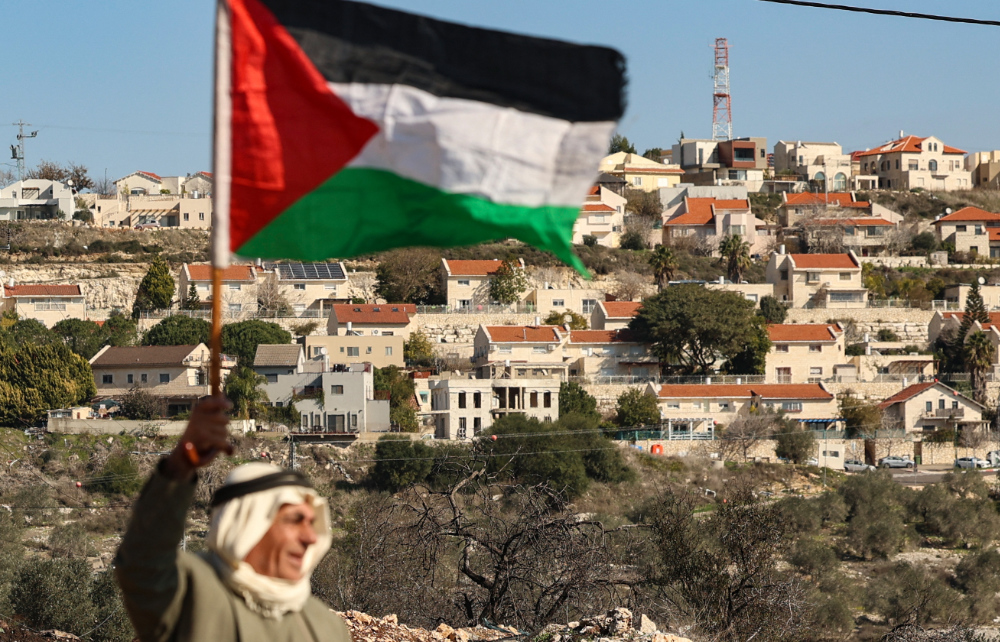
Movement restrictions described as “draconian” by Amnesty also provide a visceral reminder of the oppression that Arabs face daily. (AFP)
These legal mechanisms, the report added, “systemically privilege Jewish citizens in law and in practice through the distribution of land and resources, resulting in their relative wealth and well-being at the expense of Palestinians.”
Movement restrictions described as “draconian” by Amnesty also provide a visceral reminder of the oppression that Arabs face daily.
The internet is awash with images of heavily armed Israeli soldiers and police interrogating and herding huddled masses of Palestinians through checkpoints, many of them hoping only to reach work or school unimpeded and on time.
Israel’s web of checkpoints, roadblocks, fences and other structures control the movement of Palestinians within the occupied territories and restrict their travel into Israel or abroad, Amnesty said, adding that these restrictions serve “as a means of control over land and people.”
And for Palestinians in Gaza, the situation is even worse. For them, “travel abroad is nearly impossible under Israel’s illegal blockade, which Israel imposes on Gaza’s entire population as a form of collective punishment.”
But despite the oppression they face at the hands of the Israeli state, the Palestinian people have “never stopped resisting,” Saleh Higazi, Amnesty International’s head of office in East Jerusalem, told Arab News.
Despite the odds being stacked against them, Palestinians have found new and creative ways to resist apartheid, he said.
Higazi highlighted the solidarity expressed within Palestine and globally when authorities tried to evict Palestinians from their homes in Sheikh Jarrah, East Jerusalem.
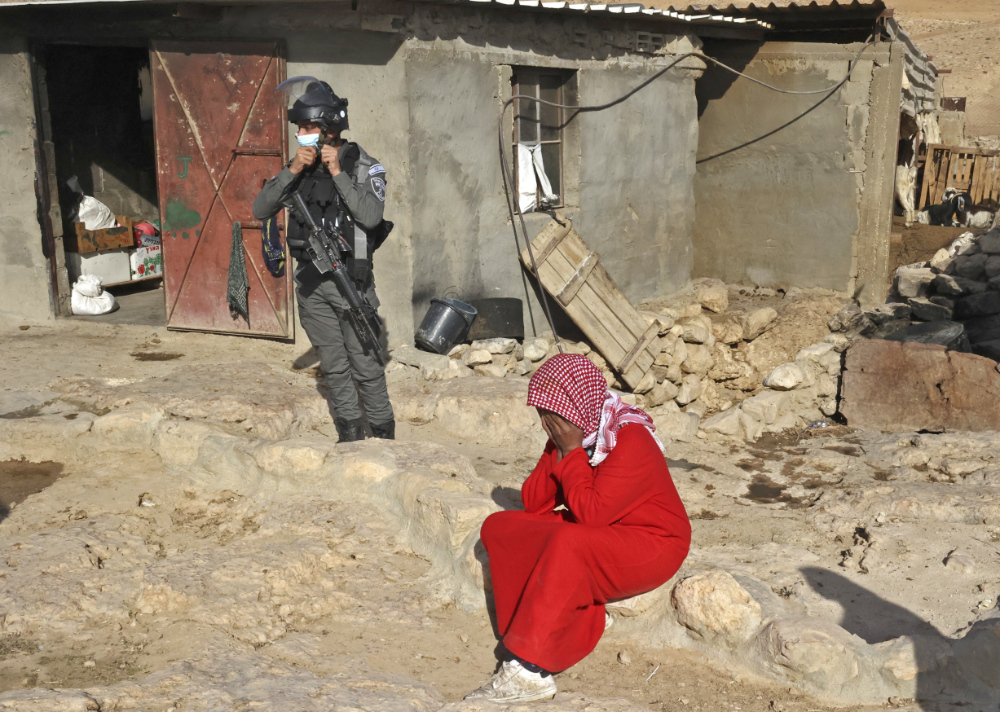
Amnesty has documented extensive evidence that the Israeli state now engages in apartheid in the legal sense. (AFP)
Further, a general strike among Palestinians across all territories — intentionally divided from each other by Israel — was convened “to show that they are one people, one group, that stands against the policies and practices of fragmentation that Israel has been imposing on them since its establishment.”
He added: “Palestinians have not stopped resisting. This is why reality has unfortunately become more brutal.”
Amnesty’s report received a furious reaction from Israel. Senior officials obtained the report ahead of its release and leaked it ahead of its scheduled publication date.
The Israeli Embassy in London wrote on Twitter: “Amnesty International’s report is a shameful misrepresentation of Israel’s diverse and dynamic society. As a proud democracy, we looked for nuance but found only falsehood and distortion.
“This antisemitic report recycles lies instead of seeking truth and consolidates bad-faith attacks from those who seek to demonize the state of Israel.
“Our citizens can speak from lived experience about the challenges we face as we try to create a better society, the goal of every democracy. We need to amplify these voices. We should center people who passionately and openly reflect the complexity and nuance of Israeli society, as opposed to focusing on erroneous and damaging reports that attempt to delegitimize Israel.
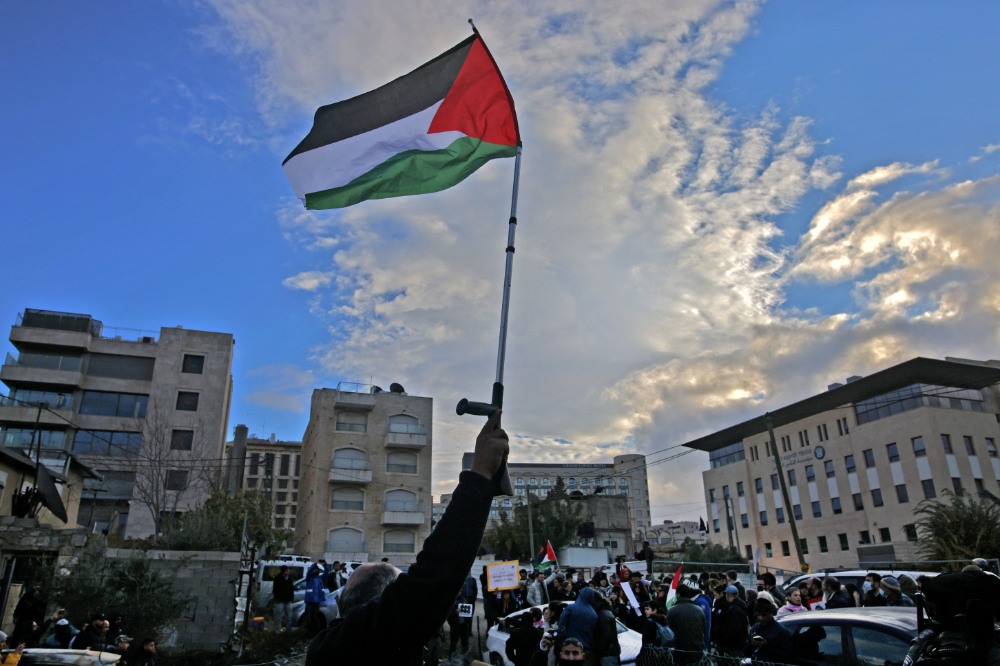
“Palestinians have not stopped resisting. This is why reality has unfortunately become more brutal.” (AFP)
“It’s a sad truth that if Israel were not a Jewish state, Amnesty would not employ such vicious smears against us,” the statement added.
Higazi vehemently rejected the claim that his organization is antisemitic. Accusations like this, he said, are “not new” and have long been “weaponized by Israel.”
“They have used such baseless and false accusations to divert attention from what really needs to be the focus: the crime against humanity of apartheid.”
Higazi continued: “Any state or authority that carries out systematic human rights violations or states that impose systems of oppression amounting to the crime against humanity of apartheid will be worried about the truth, this truth, being exposed.”
Israel is “worried and scared,” Higazi added. “I hope that they are scared because we will be campaigning along with our partners to dismantle the system, which means holding those responsible accountable.”




